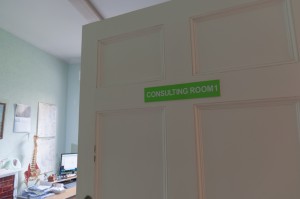 When do you need an osteopath?
When do you need an osteopath?
You usually think of osteopaths treating sore backs. However, there are a wide range of problems which respond well to osteopathic care. Musculo-skeletal problems include sports injuries, sprains, neck, shoulder, arm syndromes, tennis elbow and many other aches and pains of the body. In addition, problems not associated directly with the back can often respond to treatment.
They include dizziness, tinitus, asthma, headache and migraine, digestive problems, mentrual problems and many more.
Your first visit
When you first come to see us you will be asked to fill in a questionnaire outlining your problem. After this you will be seen by the osteopath who will take a detailed medical history. He will examine the appropriate areas to help him make an accurate diagnosis of your problem or discuss your nutritional needs. He will then explain what treatment plan he suggests to help sort things out. Since osteopathy and naturopathy are holistic approaches, treatment will often include the whole body, as well as looking at other issues such as nutrition, exercise and lifestyle. This also gives you plenty of opportunity to ask questions about a wide range of health issues and discuss any worries or fears about your condition or the treatment involved. Once you have agreed with the osteopath what should be done, treatment can begin.
Treatment
Osteopathic treatment is a physical treatment in which the osteopath uses his hands to adjust or manipulate various parts of the body to restore normal function. During manipulation, patients may feel slight momentary discomfort but it stops when the adjustment is complete. The patient may hear a little click. This can indicate that the joints in the spine are starting to free up; the first stage to improving function. After manipulation, there may be some soft tissue treatment and you may be shown some exercises or advised on the use of ice packs to help reduce discomfort. You will be given advice on what to do at home and when to return for further treatment; Naturopathic treatment may involve you taking some supplements to help improve your health or you may find that adjustments to your diet alone will suffice.
Continuing care
There are two well known sayings which could have been written about osteopathy and naturopathy. They are “A stitch in time saves nine” and “prevention is better than cure”. It is hoped that as the benefit of osteopathy becomes better understood in the population at large, people will understand that visiting your osteopath should be like visiting your dentist. Regular visits every four to six months should prevent big problems from developing but if there is a crisis, your osteopath who has seen you regularly will be better able to sort out your problem and get you going without major disruption to your work, private or family life. If you are unlucky enough to get an injury then the sooner your osteopath can start working on the problem, the sooner you will be better and the fewer treatments you will need.
